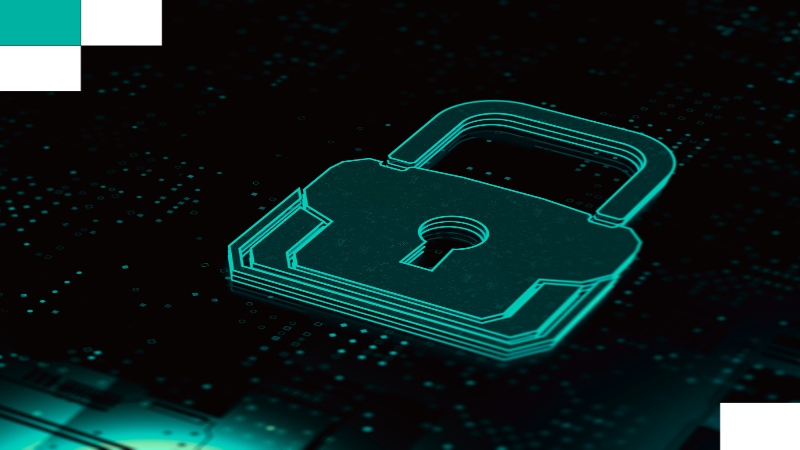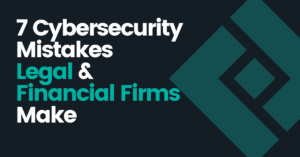Remote work and cloud based operations have become the norm for a variety of businesses in a variety of sectors. This means that employees are able to access company information through their laptops, smartphones and home networks which means the traditional security barrier has all but disappeared.
This monumental shift has made endpoint security vital. Every device connected to a network, from a laptop to a server, can quickly become an entry point for cybercriminals. In order to stay protected, businesses need to implement a comprehensive endpoint security solution that safeguards these vulnerable access points against threats.
In this article, we take a look at the importance of endpoint security for today’s businesses.
What is Endpoint Security?
Endpoint security refers to securing endpoints, that is: the individual devices that connect to a business network. These devices can include desktops, laptops, servers, the Internet of Things and mobile devices. Unlike traditional antivirus software that is designed to scan for malware, modern endpoint security solutions offer a layered and strategic defence against a variety of possible and ever-evolving cyber threats.
Modern endpoint security systems are designed to go well beyond reactive malware scanning as they actively monitor endpoints for suspicious behaviour and enable swift incident response. This is vital as modern attackers are using increasingly sophisticated tactics such as fireless malware and zero-day exploits to action these attacks.
The goal of endpoint security is to prevent threats while also detecting them quickly and responding to them in real time – this preventative action minimises damage and helps maintain operational continuity.
How Does Endpoint Security Work?
Effective endpoint security solutions use a combination of technologies and policies to provide comprehensive protection.
These components all work together to effectively defend against known and unknown threats:
- Antivirus & Anti-Malware: This forms the foundation of endpoint security. Antivirus and anti-malware tools are used to scan devices for malicious software, including viruses, trojans, spyware, and ransomware. They use signature-based detection as well as behavioural analysis to identify threats.
- Endpoint Detection and Response (EDR): EDR solutions provide continuous monitoring and analysis of endpoint activity. They look for unusual behaviour that may indicate an attack in progress and when a threat is detected, EDR tools can automatically isolate the device, block malicious processes, and alert the security team.
- Application Control: Application control guarantees that only approved applications can run on an endpoint. By creating whitelists and blacklists, organisations are successfully able to prevent the execution of unauthorised or unknown software.
- Security Configuration Hardening: Hardening endpoint configurations disables unused features, services, and legacy protocols that may introduce vulnerabilities. By reducing the attack surface—such as turning off SMBv1, unused ports, or outdated scripting engines—organisations can prevent exploitation of weak or unnecessary components.
- Data Encryption: Data stored on endpoints can quickly become vulnerable if devices are lost or stolen. Encryption tools secure sensitive information by encoding it, making it unreadable without the appropriate decryption key. This is essential for compliance with regulations such as GDPR and PCI DSS.
- Device & Access Management: Endpoint security is also made up of controlling who is able to access company systems and under what conditions they may have access. Multi-factor authentication (MFA), role-based access, and remote device management help ensure that only authorised users can access sensitive information.
Combined, the above technologies create a strong defence that protects endpoints at every stage of the cyberattack lifecycle.
Common Cyber Threats Targeting Endpoints
Endpoints are most often the first target for cyberattacks. This is especially true when they are outside the corporate firewall.
Below, we take a look at some of the most common threats:
- Malware & Ransomware: These are among the most damaging threats. Malware can steal, destroy, or encrypt data, while ransomware locks users out of systems until a ransom is paid.
- Phishing & Social Engineering: These sophisticated attacks are designed to trick users into revealing credentials or downloading malicious files. A convincing phishing email can bypass technical defences by exploiting human error.
- Zero-Day Exploits: This kind of threat targets unknown vulnerabilities in software before patches are available. Attackers use these exploits to gain control over endpoints or to install persistent malware.
- Unauthorised Access: If an attacker obtains valid login credentials, they can access sensitive data or systems undetected. Endpoint security tools can detect and block such unauthorised access attempts.
Why Businesses Need Strong Endpoint Security
As described above, the risks to endpoint devices are substantial. Today, businesses cannot afford to ignore them and this is why a robust endpoint security strategy is key.
Below, we take a closer look at the benefits of endpoint security for business:
- Prevents Data Breaches and Cyberattacks: By detecting and neutralising threats early, endpoint security helps prevent breaches that can lead to financial loss, reputational damage, and operational downtime.
- Supports Regulatory Compliance: Many industries are subject to strict data protection regulations. Endpoint security solutions can assist in complying with standards such as: GDPR, PCI DSS, ISO 27001 – as well as encryption, access control, and audit logging to support these compliance efforts.
- Reduces Insider Threats: Not all cyber threats come from outside. Endpoint security also helps mitigate risks posed by insiders, whether through negligence or malicious intent. Features such as device monitoring and application control can limit access to sensitive data and flag unusual behaviour.
- Enables Remote Work Safely: With more employees working from home, endpoints are often outside the protection of the corporate firewall. Cloud-based endpoint security solutions provide consistent protection regardless of location, ensuring remote devices are secured to the same standard as on-premise systems.
Endpoint Security and Your Business
Endpoint security is fast becoming a cornerstone of any modern cybersecurity strategy. As businesses embrace flexible working, digital transformation, and cloud-first infrastructure, the number of endpoints grows and with this, so does the attack surface.
At Foxtech, we understand that protecting your endpoints is key to protecting your business. Our advanced security solutions combine cutting-edge technology, expert threat intelligence, and proactive monitoring to safeguard your most critical assets.
Contact us today and learn how we can help you secure your endpoints and build a resilient cybersecurity posture for the future.





